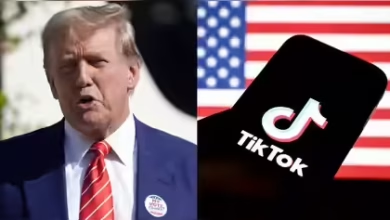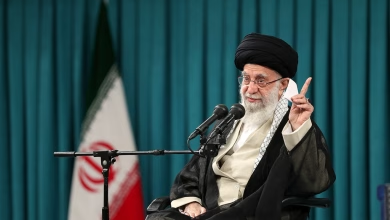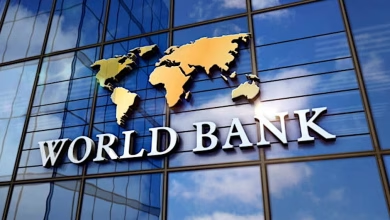Turkey’s BRICS Bid Raises NATO Alarm

- Turkey arrested 15 suspects in an attack.
- The White House praised Turkey’s response.
- The incident highlights geopolitical strains from the Gaza war.
- Duclos says Erdogan's influence is weakening and suggests the BRICS bid is a distraction
Turkey’s bid to join the BRICS bloc, which includes Russia and China, is raising concerns about President Recep Tayyip Erdogan’s commitment to NATO. As a key member of the world’s most powerful military alliance, Turkey’s move underscores the shifting geostrategic landscape and strains on the post-war order amid rising international tensions.
On June 11, while Ukrainian President Volodymyr Zelensky was appealing for support at a conference in Berlin, Turkish Foreign Minister Hakan Fidan was meeting with Russian President Vladimir Putin in Moscow.
Fidan described the Kremlin talks as having gone “fantastically well,” and Putin expressed approval, saying, “We welcome Turkey’s interest in BRICS and will fully support this aspiration,” according to Turkish media.
This week, Turkey’s pursuit of BRICS membership took a significant step forward when President Recep Tayyip Erdogan’s Justice and Development Party (AKP) officially confirmed the country’s application to join the bloc of emerging economies.
AKP spokesman Omer Celik reiterated Turkey’s intention, stating, “Our president has consistently expressed our desire to join BRICS. Our request is clear, and the process is moving forward accordingly.”
Turkey’s bid to join the BRICS bloc, which includes Russia and China, marks the first time a NATO member and EU candidate has sought membership in a group that positions itself as a counterweight to the Western-led global order. This move highlights the growing geostrategic shifts and strains on the post-war order amidst rising international tensions.
Historically, BRICS was often dismissed as a loose coalition with no clear purpose. The acronym “BRIC” was first coined by British economist Jim O’Neill in 2001 to group Brazil, Russia, India, and China—nations with large populations and economic potential. The concept gained traction, and the group officially became BRICS with the addition of South Africa in 2010. Over the past 15 years, the bloc has expanded to include Egypt, Ethiopia, Iran, and the UAE.
Turkey’s application is notable as it joins nearly 20 other countries seeking BRICS membership, prompting the bloc to establish expansion procedures. This has led to internal divisions, with Russia and China advocating for expansion while Brazil and India are more cautious. The BRICS New Development Bank (NDB), an alternative to the World Bank and IMF, has also seen growth, with Algeria recently joining alongside Bangladesh and Uruguay.
Turkey’s bid has attracted attention from Western capitals. As NATO’s only Muslim-majority member straddling Europe and Asia, Turkey’s strategic location is critical amid ongoing conflicts in the Black Sea and the Middle East. Experts suggest that Turkey’s move reflects a desire to diversify alliances without abandoning its NATO membership or European aspirations.
Michel Duclos, a former French ambassador, notes that while Turkey’s BRICS bid does not breach NATO rules, it may contradict the spirit of NATO’s confidential and trust-based exchanges. The bid highlights Turkey’s complex balancing act between Western and non-Western alliances.
Turkey’s relations with Western allies have been strained, particularly over its purchase of the Russian S-400 air defense system, which led to U.S. sanctions and Turkey’s removal from the F-35 jet program. The recent approval of the F-16 sale came only after Turkey ratified Sweden’s NATO membership.
The U.S. response to Turkey’s BRICS application has been cautious, with experts suggesting that Washington may downplay the issue. BRICS, while growing, lacks the military and unified interests of Western alliances, which may limit its impact.
The broader appeal of BRICS reflects a shift towards multipolarity as frustration grows with the US-led global order. Observers note that the increasing number of BRICS candidates signals a diminishing Western dominance and prestige, especially evident in the wake of Russia’s invasion of Ukraine.
wo years into the Ukraine war, perspectives have become more nuanced. According to Michel Duclos, many countries in the Global South do not support Russia’s aggression against Ukraine, yet they are still willing to engage with Russia within the BRICS bloc. This, Duclos suggests, sends a significant message.
The core of this message is that while many Global South nations are not necessarily anti-Western, they strongly oppose Western sanctions. Countries like Brazil and Saudi Arabia may not be opposed to Washington itself but are critical of its sanction policies.
The ongoing Gaza conflict and the U.S.’s steadfast support for Israel, amidst a death toll exceeding 40,000 in the Palestinian enclave, have also fueled criticisms of Western double standards. This sentiment is echoed by Moscow and Beijing.
Duclos points out that the Gaza war has intensified perceptions of Western hypocrisy. He argues that many in the Global South see the West’s partiality towards Israel as a significant blow to its global standing.
Erdogan has long positioned himself as a leader of the Muslim world. However, despite his fiery rhetoric, his inability to halt or even slow Israel’s assault on Gaza has eroded his popularity in Turkey.
In the April local elections, Erdogan’s AKP suffered defeats in mayoral races across the five largest Turkish cities and saw a notable drop in national vote share. The unexpected victor was the small, hardline Islamist party YRP, which campaigned against Turkey’s increasing trade ties with Israel.
The Gaza conflict has not only energized the Islamist right but also stirred wider dissatisfaction with Erdogan’s foreign policy.
Turkish police have arrested 15 suspects in connection with the attack, and the White House has expressed appreciation for their efforts. However, the incident highlights the geopolitical tensions exacerbated by the Gaza conflict.
Michel Duclos observed, “Erdogan’s position is significantly weaker now than it was a few years ago. The Gaza war has shown how limited Ankara’s influence is on a matter of great concern to many Turks.” He suggested that Turkey’s bid to join BRICS may be an attempt by Erdogan to shift focus away from his recent challenges and perceived failures.






